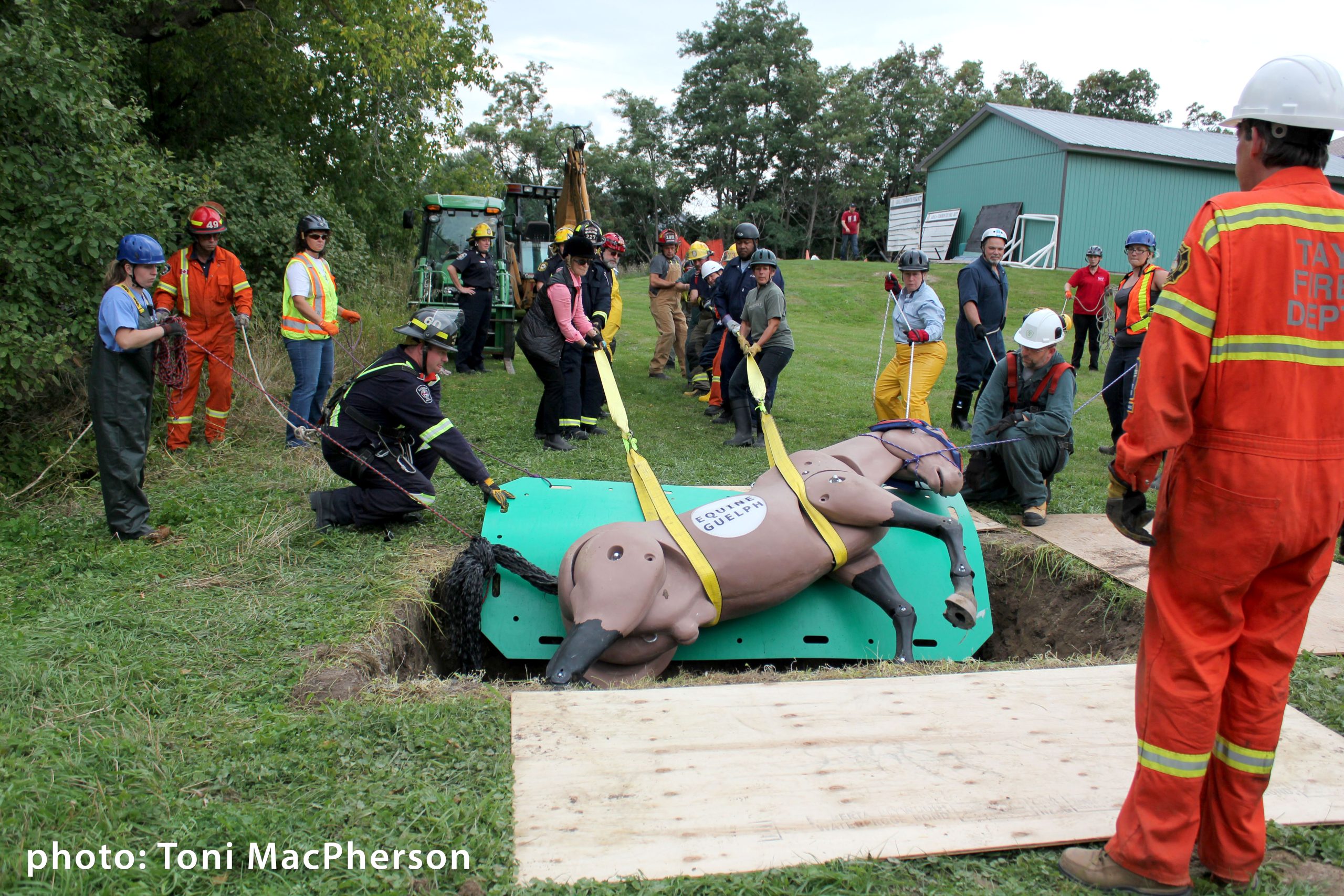GUELPH – A recent announcement of $150,000 over three years from the Grand River Agricultural Society (GRAS) to Equine Guelph will kick off a multi-year initiative to continue building and developing programs of value to the horse industry.
The donation from the society will support Equine Guelph programs in job training and educational pathways to careers.
“It’s wonderful because it gives us some stable income over three years,” director of Equine Guelph Gayle Ecker said.
“We’re not for profit, so when you have a known income thats stable over three years, that’s a wonderful gift.
“We really do applaud Grande River Ag. Society for stepping up and helping us that way.”
Ecker noted GRAS has been an important partner with Equine Guelph for many years through supporting smaller projects on an annual basis.
“The reason why this is so nice is because it’s shared mandates,” she explained. “So it’s rural employment, it’s the horse industry, and those are all things that Equine Guelph shares.”
Initiatives undergoing further development and expansion will include the EquiMania youth program, the Equine JobTrack, and the Large Animal Emergency Rescue program (LAER).
With the pandemic, Ecker said Equimania, being the only Canadian traveling horse exhibit of its size, hasn’t been able to run the last few years.
“We’ve been really restricted,” she said. “So that money is going to help us create a bigger online presentation of Equimania.
“With all these kids at home, they’re on the computers, this is where we can reach them,” she explained.
“We want to use the Equimania online program to reach out to these kids and still give them an experience with horses because so many of them just have not got that opportunity.”
The support from GRAS will help ensure the addition of new programs to engage the next generation of the future equine industry.
More information can be found at EquiMania.ca.
In addition, although the Equine JobTrack has been around a long time, Ecker said the GRAS has stepped up with some funding to help completely revise and renew it.
“So it’s brand new, interactive, self-governed – you can go in and you can put your own posting in there and keep track of it,” she explained.
“There’s little areas that have regional job openings and things like that, but we wanted to have the centralized hub for those looking for employment plus those who have employment options open.
“We’re hoping it’s going to be a game changer for the industry.”
The LAER program will also see expansion of the current program, which has provided training for hundreds of first responders in Ontario.
The new “hybrid micro-credential” model will feature a series of short online awareness level courses as well as offerings of a hands-on workshop for operational level.
“It’s for anyone who’s out there that might be attending a scene,” Ecker said.
“So cattle trucks roll over, horse trailers roll over, horses get out and get stuck in bogs, or fall through ice on rivers and the fire department is the one that gets called for that.
“But it’s a specialized training that they don’t get through their normal course of training,” she explained. “And yet, it’s extremely important.
“The separate cow is worth a lot of money to that farmer; the horse has value beyond its financial value,” she added.
“And of course, you want to see a good outcome from all of this.”
Because it’s known funding for three years, Ecker said Equine Guelph will be allocating specific amounts to the training, “so that we can get out into Ontario and do more training in different areas.”
The 90-minute online sessions introduce best practices for mitigating both handler and animal risk for successful rescues and provided a foundation for future hands-on practical training.
The development of the hybrid model will allow a high number of participants to access introductory training material online, while providing critical hands-on training at an advanced level to first responders.
“Again, it’s all about rural Ontario’s horse owners,” Ecker said. “Its large animals, it’s kids, it’s employment.
“And those are all the things that we share – those mandates with Grand River – so it’s a perfect partnership.”
Ecker said the funding will enhance programming significantly because Equine Guelph knows it has the money coming and can now invest towards different programming.
“It gives us that security for three years,” she said. “The other thing too is I’m quite honoured because it’s a sign of confidence from Grand River Agricultural Society in Equine Guelph.
“That’s really what makes for a wonderful partnership,” she added. “We’ve had a good one for many, many years, but this just strengthens the partnership.”
Information about each of the programs is accessible through TheHorsePortal.ca, which is available to people across Canada.
More information can also be found at EquineGuelph.ca.




